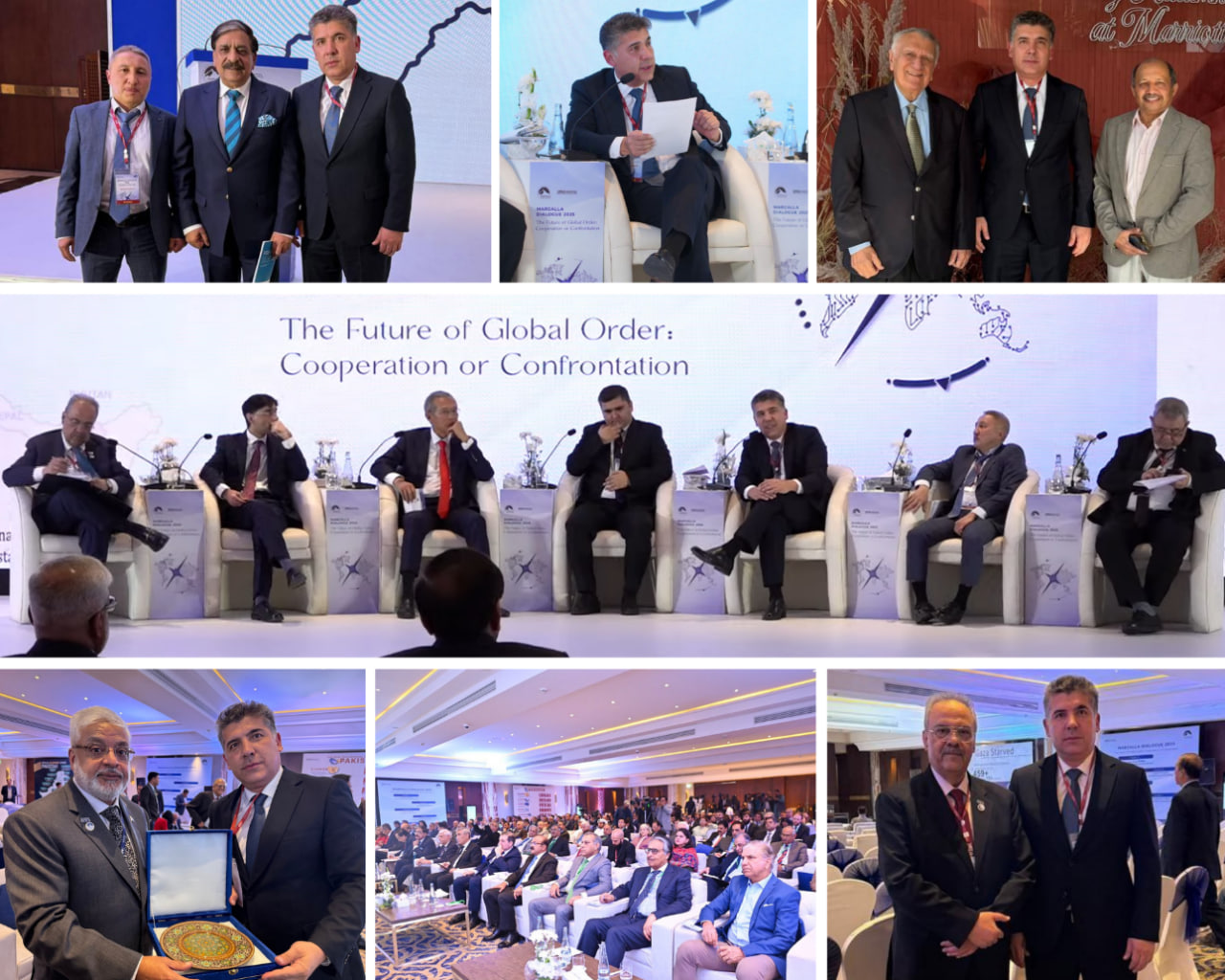Afghanistan is a key link in the regional interconnectedness of Central and South Asia

This assessment was shared by the First Deputy Director of the Institute for Strategic and Regional Studies under the President of the Republic of Uzbekistan (ISRS) Akramjon Nematov, speaking at the sixth meeting of the Margalla Dialogue 2025 on November 11-12 of this year in Islamabad (Pakistan).
The expert noted that Afghanistan is a key link in interregional connectivity.
In his words, "it is impossible to talk about full-fledged regional connectivity without addressing the issue of strengthening peace in Afghanistan. This factor is the key to creating a reliable interconnected architecture between Central and South Asia."
"It is important to understand that Afghanistan, Pakistan, and Central Asia constitute a single regional security complex. We share common challenges, and they can only be overcome through joint efforts, exclusively through cooperation," the expert emphasized.
In this regard, he stated: "We are deeply concerned about the growing tensions on the Afghan-Pakistani border and call on the countries to find a diplomatic solution. Mutual trust and restraint are essential. The parties must find the will to maintain the ceasefire and ensure that the two countries' territories are not used to the detriment of each other's interests."
"At the same time, we condemn all forms and manifestations of terrorism. Our peoples bear the brunt of the long-standing conflict in Afghanistan," the ISRS representative noted.
In this vein, Akramjon Nematov reported that Uzbekistan, Afghanistan, and Pakistan have a common format for discussing economic connectivity. "This platform can be used to strengthen regional security," he believes.
He believes there is no viable alternative to dialogue. Only interaction can build trust and help find compromises, while confrontation postpones problems, exacerbates them, and does not guarantee long-term solutions. "No matter how pressing the issues, they must be the subject of dialogue. These are not just words; they are our experience, which has allowed us to build a security community in Central Asia," the ISRS representative emphasized.
The expert is confident that "if we fail to overcome internal contradictions on our own, external interference will increase, and the region's fundamental interests will become hostage to geopolitics. This is precisely why it is important to maintain a dialogue on shared security issues, no matter how complex it may be."
At the same time, Akramjon Nematov emphasized the need to strengthen economic connectivity without politicization. Security cooperation should be aimed at addressing the causes and conditions that give rise to threats, not their consequences.
“The solution could lie in socio-economic projects, especially in border areas. This would stimulate development, eliminate the social basis for radicalisation and involve local communities in maintaining peace and stability in our region. This approach is common to all countries in Central Asia,” believes the first Deputy Director of ISRS.
In this context, he noted, cross-border projects such as the TAPI gas pipeline, the CASA-1000 power transmission line, and the Trans-Afghan Corridor, promoted by Central Asian states, could play a significant role. Their implementation would contribute to a fundamental transformation of the geostrategic landscape of the entire macro-region.
The importance of the Trans-Afghan Railway was particularly emphasized. It will not only become the shortest route connecting South Asia with Central Asia, Russia, China, and Europe, but will also create alternative sources of income for millions of people.
"These projects are not only a source of enormous economic benefits, but also a crucial investment in peacebuilding in Central and South Asia. They can stabilize the region more effectively than any political deal and strengthen the commitment of Afghanistan and its neighbors to long-term peace in the region," concluded Akramjon Nematov.
Furthermore, as part of his participation in the Margalla Dialogue 2025, the First Deputy Director of the ISRS held a series of meetings with representatives of the Pakistani expert community.
В частности, состоялись переговоры с президентом Исламабадского института политических исследований Маджидом Эхсаном, директором Центра изучения Афганистана, стран Ближнего Востока и Африки при Институте стратегических исследований Исламабада Аминой Хан, а также с профессором Пешаварского университета Мансуром Ахмад Ханом и другими.
Были обсуждены вопросы дальнейшего углубления узбекско-пакистанского сотрудничества, в т.ч. взаимодействия по линии аналитических структур.
In particular, talks were held with Majid Ehsan, President of the Majid Ehsan, President of the Islamabad Institute of Policy Studies; Amina Khan, Director of the Center for Afghanistan, Middle East, and African Studies at the Institute of Strategic Studies, Islamabad; and Mansoor Ahmed Khan, Professor at the University of Peshawar, among others.
Issues related to further deepening Uzbek-Pakistani cooperation, including collaboration between analytical institutions, were discussed.
Previous

On November 11-12 of this year, the sixth meeting of the Margalla Dialogue 2025, organized by the Islamabad Policy Research Institute, was held in Islamabad, Pakistan.
14.11.2025





